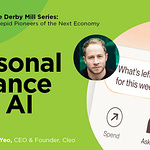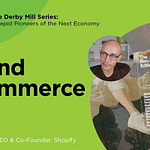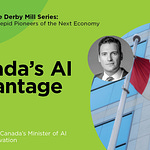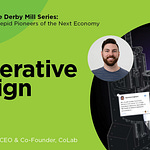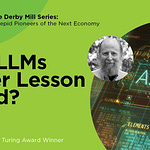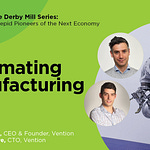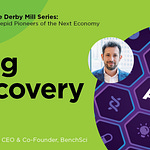In the first of our “unpacked” episodes, Intrepid partner Ajay Agrawal leads our senior advisors Rich Sutton, Sendhil Mullainathan and Niamh Gavin in a conversation that further explores the themes that arose in episode one. That episode featured a conversation with Rae Jeong, CEO of Maneva, which is using AI and reinforcement learning (RL) techniques to move factories toward autonomous operations.
In this episode, the team discusses the importance of making factories more "RLable" to enable incremental changes and ultimately achieve radical improvements. We explore the importance of continuous training data, the role of humans in active learning, and the balance between exploration and exploitation. The conversation highlights the challenges of implementing RL in manufacturing, such as the need for selective instrumentation and the potential for synthetic data.
EP 03 HOSTS
Ajay Agrawal, co-founder and partner, Intrepid Growth Partners
Richard Sutton, pioneer of reinforcement learning and professor, University of Alberta
Sendhil Mullainathan, MacArthur Genius grant recipient and professor, MIT
Niamh Gavin, Applied AI scientist, CEO, Emergent Platforms
LINKS
Maneva AI website
Maneva CEO Rae Jeong LinkedIn
A short video about Maneva’s work transforming Laura Secord chocolate production
Rich Sutton’s home page. Follow Rich on X
Sendhil Mullainathan’s website. Follow Sendhil on X
DISCUSSION POINTS
00:00 Introductions and opening credits
01:39 Clip: Rae Jeong discusses Maneva's approach to autonomous factories
02:01 Rich Sutton comments on the challenge of active learning in operating factories
04:54 Niamh Gavin on the use of simulated environments for experimentation
06:29 Rich Sutton: “It’s hard to compete with a human” for experimentation
08:05 Can simulation actually recreate a factory in all its complexity?
09:42 Sendhil Mullainathan is confused where Maneva actually uses RL
10:41 Balancing exploration and exploitation
14:52 Discussion of temporal credit assignment in manufacturing
15:54 Clip: Sendhil asks how Maneva uses labels and exploration
17:42 Clip: AI needs to conduct exploration to achieve continuous improvement
16:34 Exploring the future of manufacturing with reinforcement learning
19:29 The challenge of making factories more “RL-able”
23:01 Why prediction tends to come before control
28:55 Discussion of selective instrumentation and the role of humans
32:09 Sendhil asks, do you know why EKG leads are placed where they are?
34:28 Clip: Temporal credit assignment and taking RL to the limit in factories
38:28 Sendhil emphasizes the need for a CEO-level sale for RL in manufacturing
44:00 Challenges of fully instrumenting a factory
49:00 Algorithms identifying valuable measurements
52:42 Conclusion and final thoughts
NUGGETS: short excerpts from the full episode
1. Changing the process in autonomous factories—What will require human intervention?
2. Humans are bad at taking exploration to the limit. So how we can instead increase returns on exploration?
3. Informational actions, and what makes sense to measure to lead to improved factory efficiency
4. What would it look like to take autonomous factories at the limit? Is it even possible?
5. Pushing the envelope on autonomous factories
DISCLAIMER
The content of this podcast is for informational and educational purposes only and should not be construed as marketing, solicitation, or an offer to buy or sell any securities or investments. The opinions expressed in this video are those of the participants and do not necessarily reflect the views of Intrepid Growth Partners or its affiliates. Any discussion of specific companies, technologies, or industries is for illustrative purposes and does not constitute investment advice. Viewers are encouraged to consult with their own financial, legal, and tax advisors before making any investment decisions.



